Mix spice, also known as a spice blend, is a combination of two or more individual spices blended together to create a unique flavor profile. Unlike single spices that offer one distinct note, these blends provide balanced, complex flavors that enhance dishes quickly and easily. Whether you're a culinary pro or a weekend kitchen warrior, mastering spice blends is one of the most rewarding ways to elevate your cooking from simple to extraordinary.
In this guide, you'll learn exactly what mix spice is, discover the top 5 essential blends every kitchen needs, how to make your own at home, storage tips, and creative ways to use them in everyday cooking.
Table of Contents
- What Exactly Is a Mix Spice?
- Top 5 Must-Have Spice Blends
- How to Make Your Own Mix Spice at Home
- Storage Tips to Keep Your Spices Fresh
- Buying Guide: Choosing the Right Pre-Made Spice Mix
- Creative Ways to Use Mix Spice in Everyday Cooking
- Common Spice Mix Myths Busted!
- Frequently Asked Questions About Mix Spice
- Conclusion: Let Your Inner Chef Shine with Mix Spice
What Exactly Is a Mix Spice?
A mix spice (or spice blend) refers to a combination of two or more individual spices blended together to create a unique flavor profile. These blends are used across global cuisines to add depth, warmth, heat, or sweetness to dishes. Unlike single-ingredient spices like black pepper or cinnamon sticks, mixed spices bring complexity and balance to food.
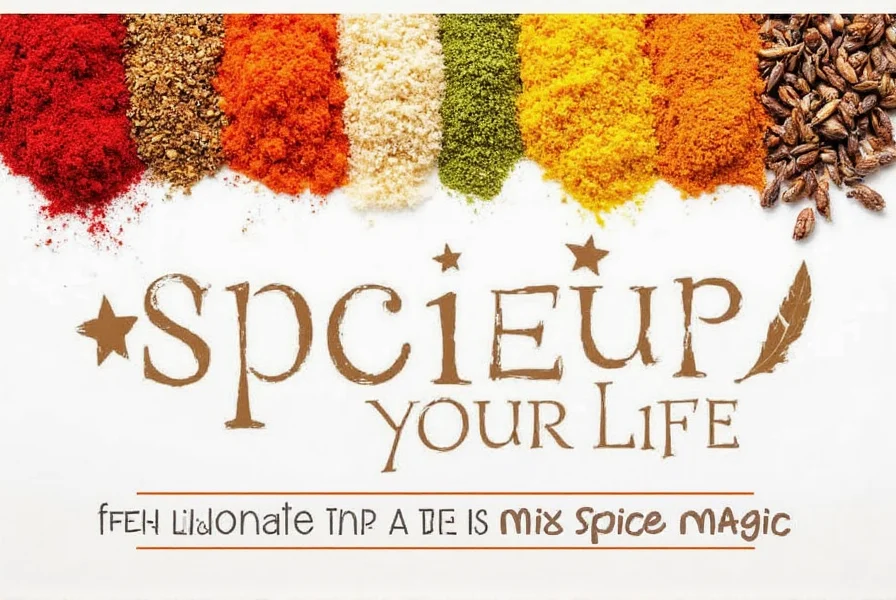
Why Use Mix Spices?
- Saves time: No need to measure out multiple spices every time.
- Balanced flavor: Professionally crafted blends ensure harmony in taste.
- Versatility: One mix can be used in multiple recipes.
- Consistency: Get the same great taste every time you cook.
Top 5 Must-Have Spice Blends
If you're just starting out with mix spice, here are five essential blends that should live on your pantry shelf:
| Blend Name | Main Ingredients | Best For |
|---|---|---|
| Garam Masala | Cumin, coriander, cardamom, cloves, cinnamon | Indian curries, roasted vegetables |
| Chili Powder | Ground chili peppers, cumin, garlic, oregano | Mexican dishes, stews, rubs |
| Harissa | Smoked paprika, chili peppers, caraway, garlic | Middle Eastern & North African dishes |
| Ras el Hanout | Over 20 different spices, including turmeric, ginger, allspice | Lamb dishes, tagines, couscous |
| Dukkah | Nuts, sesame seeds, coriander, cumin | Dipping oil, salad dressings, roasted veggies |
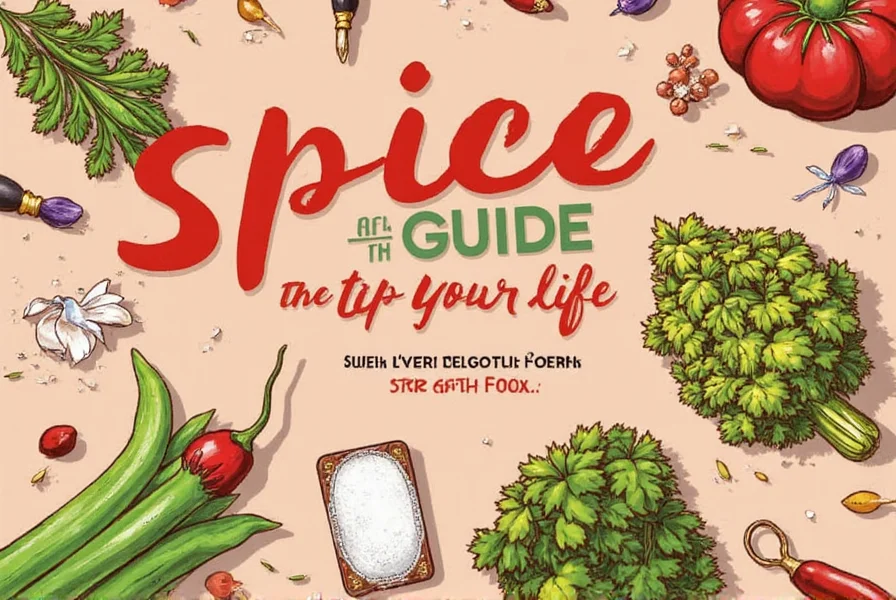
How to Make Your Own Mix Spice at Home
Creating your own spice blend lets you customize the flavors exactly to your liking. Plus, it's surprisingly easy and fun!
What You Need
- Whole or ground spices
- A spice grinder or mortar and pestle
- An airtight container for storage
- A small notebook (optional) to keep track of your favorite ratios
Step-by-Step Guide
- Pick a base spice: Choose something like cumin, coriander, or paprika as your foundation.
- Add warmth or heat: Include elements like cinnamon, chili powder, or ginger for extra layers.
- Round it out: Add aromatics like garlic powder, mustard seeds, or dried herbs for depth.
- Balance the flavor: Taste and adjust. Too spicy? Add more mild spices like fennel or anise. Too bland? Boost with salt or citrus zest.
- Store properly: Keep in a cool, dark place and label clearly.
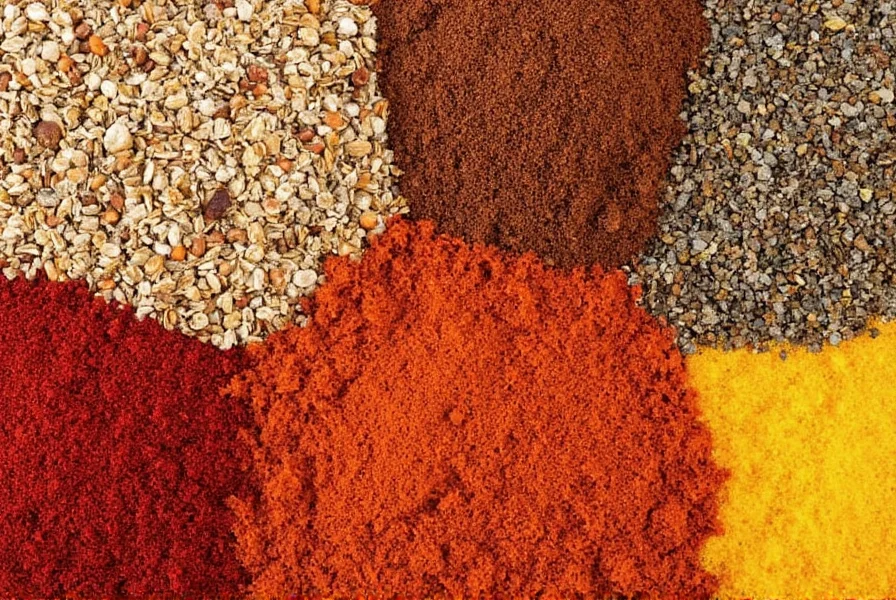
Storage Tips to Keep Your Spices Fresh
Even the best mix spice will lose its punch if stored improperly. Here's how to keep those flavors locked in:
Do:
- Store in opaque, airtight containers
- Keep away from heat sources (like the stove)
- Label each mix with the date it was made
- Use within 6 months for peak freshness
Avoid:
- Storing near steam or moisture
- Exposing to direct sunlight
- Using old spices that have lost their aroma
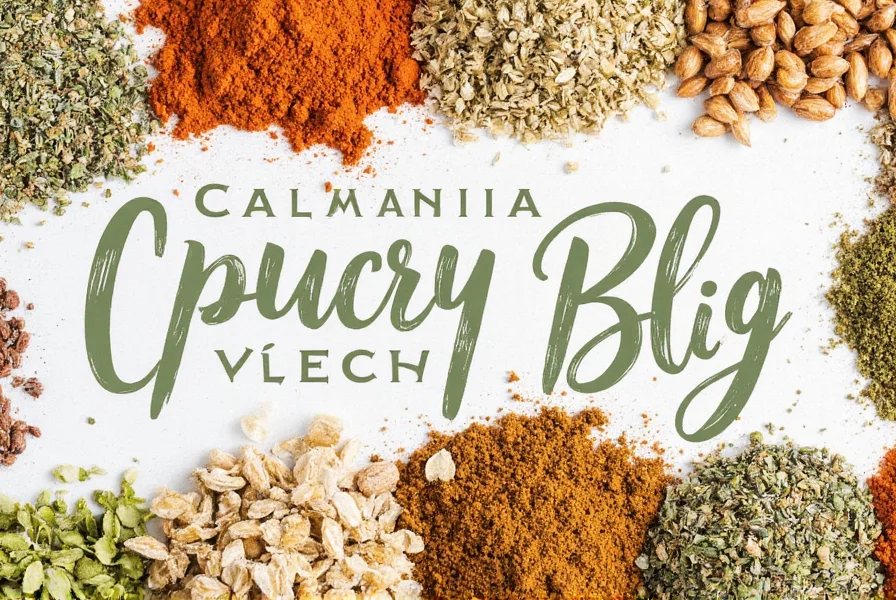
Buying Guide: Choosing the Right Pre-Made Spice Mix
For those who don't have time to make their own spice mixes, store-bought options are a great alternative. But not all mixes are created equal. Here's what to look for when shopping:
| Product | Features | Advantages | Best For |
|---|---|---|---|
| McCormick Garam Masala | Premium quality, aromatic blend | Convenient, authentic Indian flavor | Weeknight curries, soups |
| Simply Organic Chili Powder | Organic ingredients, bold flavor | No artificial additives | Tacos, chili, burgers |
| La Kama Ras el Hanout | Artisan blend from Morocco | Complex, exotic notes | Fancy dinners, slow-cooked meats |
| Williams Sonoma Harissa | Smoky and rich, slightly sweet finish | High-quality ingredients, versatile use | Grilled veggies, dips, spreads |
| Spice Garden Dukkah | Traditional Egyptian recipe | Crunchy texture, nutty flavor | Dips, salads, bread seasoning |
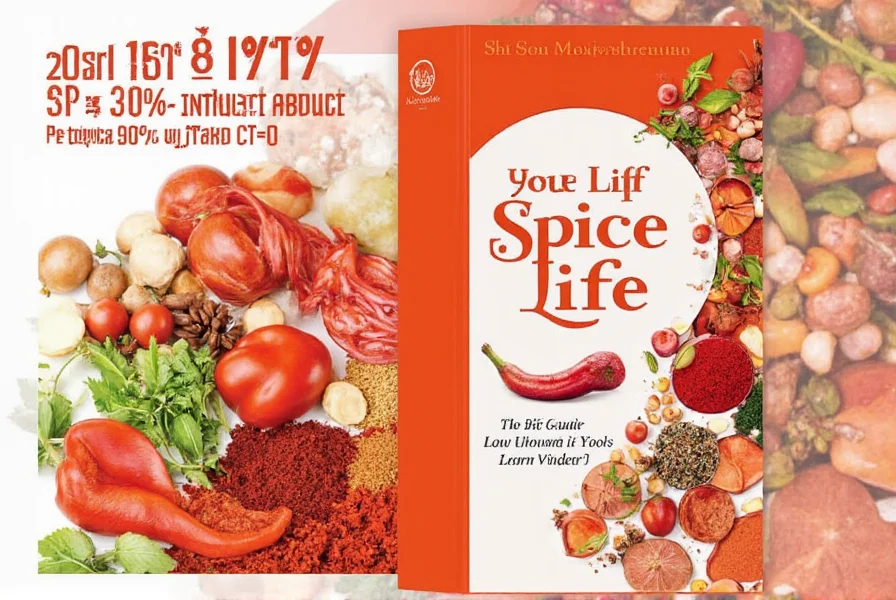
Creative Ways to Use Mix Spice in Everyday Cooking
You don't need to stick to traditional recipes. Try these fresh ideas to shake things up:
- Add to popcorn: Sprinkle za'atar or chili-lime mix for a savory snack.
- Boost smoothies: A pinch of cinnamon-ginger blend adds warmth to fruit smoothies.
- Flavor your coffee: Cardamom-cinnamon mix gives a Middle Eastern twist.
- Marinate proteins: Rub harissa or jerk seasoning onto chicken or tofu before grilling.
- Enhance desserts: Cacao mole mix adds depth to brownies and hot chocolate.
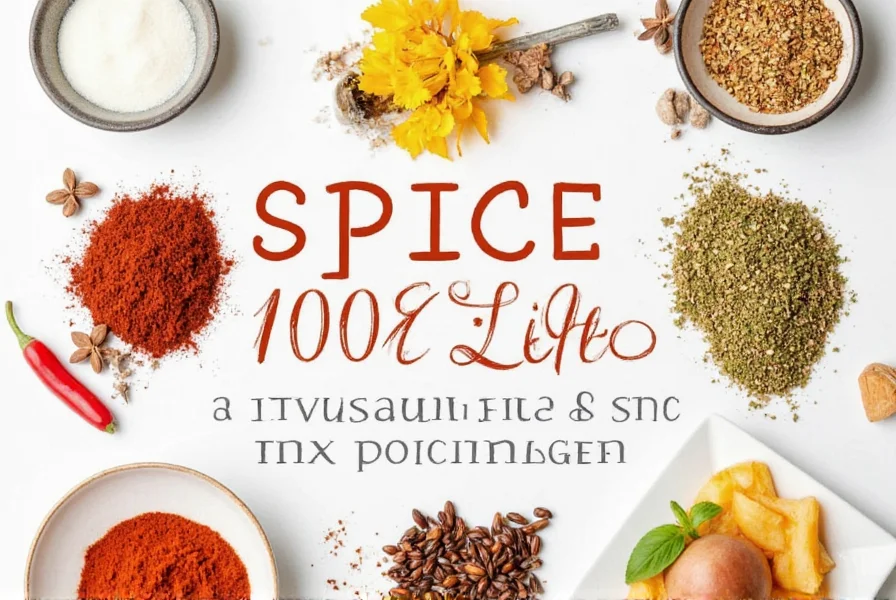
Common Spice Mix Myths Busted!
Let's clear up some confusion around spice mixes:
- Myth #1: All pre-made spice mixes are full of fillers.
Reality: While some cheap brands may cut corners, many artisan and organic brands offer clean, pure blends. - Myth #2: You need special tools to make your own mixes.
Reality: A simple spoon and bowl are enough to start experimenting. - Myth #3: Spice mixes only work with certain cuisines.
Reality: Many blends are versatile — try garam masala in a lentil soup or harissa in a pasta sauce! - Myth #4: Once opened, spice mixes last forever.
Reality: Most blends start losing potency after 6–12 months. Label them to keep track!
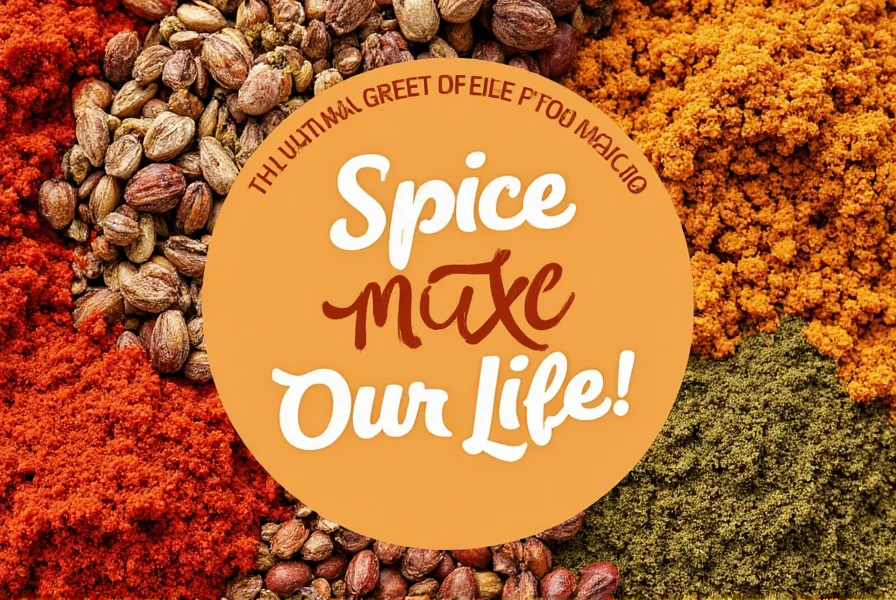
Frequently Asked Questions About Mix Spice
What's the difference between a mix spice and single spices?
Mix spices combine multiple individual spices to create complex flavor profiles, while single spices offer one distinct flavor note. Mixes provide convenience and balanced flavor complexity that's hard to achieve by measuring individual spices each time you cook. They're designed to work harmoniously, creating depth that single spices can't match on their own.
How long do homemade spice mixes last?
Homemade spice mixes typically stay fresh for 3-6 months when stored properly in airtight containers away from light and heat. Whole spices last longer than ground ones, so consider making smaller batches or keeping base components separate until ready to blend. Proper storage is key—never store spices above the stove or near windows where temperature and light fluctuate.
Can I substitute one spice blend for another?
Yes, but with caution. While some blends share common ingredients, each has a unique flavor profile. Garam masala could work as a substitute for curry powder in a pinch, but not for something like dukkah. Always consider the dish's flavor requirements before substituting—some blends are earthy, others smoky or citrusy, and replacing one with another could completely change your dish's character.
Are pre-made spice mixes worth buying?
Absolutely, especially high-quality brands. Pre-made mixes save time and offer consistent flavor. For everyday cooking, trusted brands provide reliable results. However, making your own allows customization to your taste preferences and ensures maximum freshness. A good approach is to start with quality pre-made blends to understand flavor profiles, then experiment with homemade versions once you're familiar with what works.
How do I know if my spice mix has gone bad?
Fresh spice mixes should have a strong, pleasant aroma. If your mix has little to no scent, has changed color significantly, or tastes bland, it's likely past its prime. Properly stored mixes shouldn't develop mold or moisture, which would indicate improper storage rather than age. A simple test: rub a small amount between your fingers—if you can't smell it strongly, it's time to replace it.
What's the most versatile spice blend for beginners?
Chili powder is incredibly versatile for beginners—it works in Mexican dishes, soups, stews, roasted vegetables, and even adds depth to chocolate-based desserts. It's widely available, affordable, and forgiving in terms of measurement. If you're looking for something more globally adaptable, a simple za'atar blend (thyme, sumac, sesame seeds) works wonders on everything from eggs to roasted vegetables to bread dips.
Can I use spice mixes in baking?
Yes! Many spice mixes enhance baked goods. Pumpkin pie spice is technically a blend, but others like chai spice mix (cinnamon, cardamom, ginger, cloves) work beautifully in cakes and cookies. Even savory blends like za'atar can elevate breads and focaccia. When using savory blends in baking, start with smaller amounts (1/4 to 1/2 teaspoon per cup of flour) and adjust to taste.
How do I adjust spice blends to my personal taste?
Start with a base recipe, then adjust incrementally. If a blend is too hot, add more of the milder components like coriander or cumin. If it's too bland, increase the pungent spices. Keep notes of your adjustments—small changes of 1/8 to 1/4 teaspoon at a time make big differences. Always toast whole spices before grinding for maximum flavor, and remember that flavors will meld and develop over 24-48 hours after blending.
Conclusion: Let Your Inner Chef Shine with Mix Spice
Mastering the art of mix spice is like unlocking a new level of creativity in your kitchen. Whether you buy ready-made blends or create your own custom mixtures, the key is to experiment and find what works for your palate.
From warming comfort foods to exciting global flavors, spice mixes are your secret weapon for making meals unforgettable. So grab a few jars, get mixing, and let your taste buds travel the world — one bite at a time!
Now go forth and sprinkle joy — and flavor — wherever you cook!
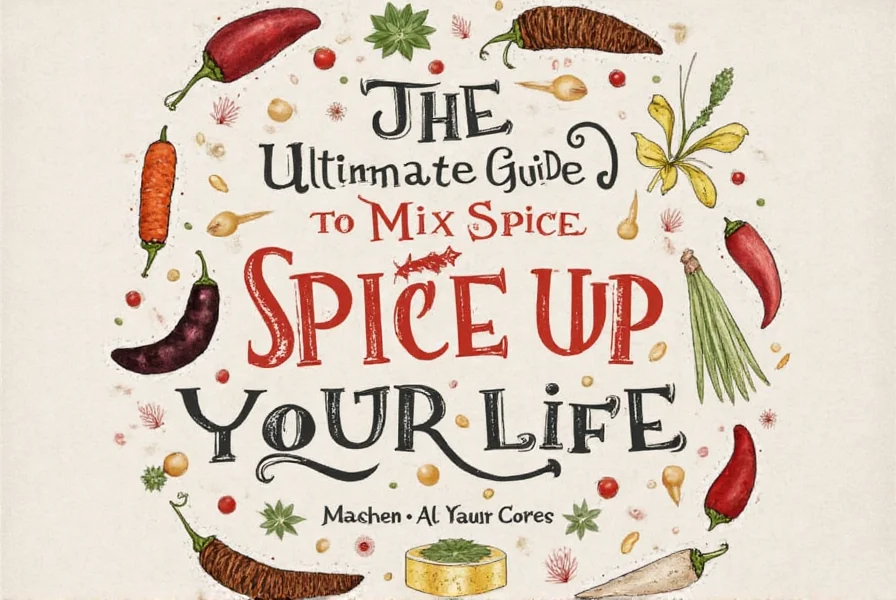

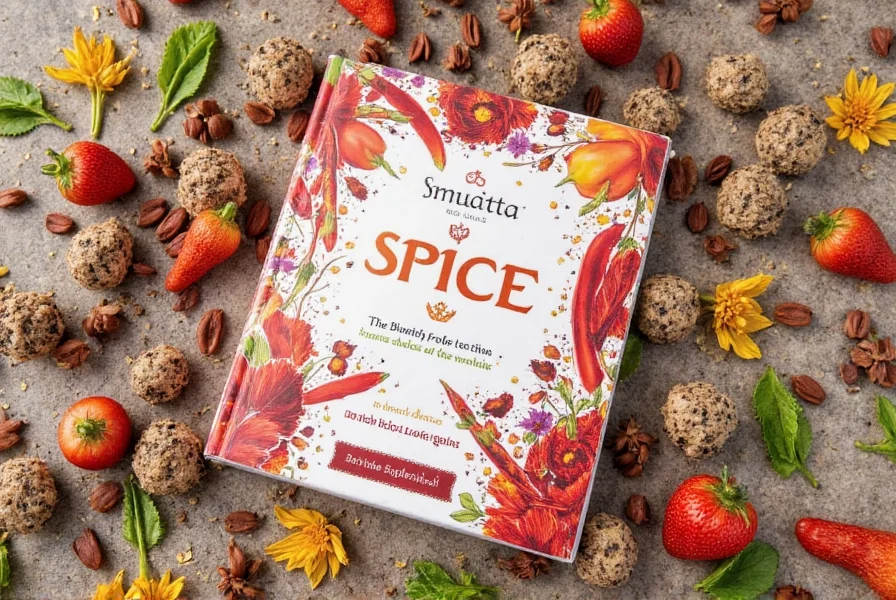









 浙公网安备
33010002000092号
浙公网安备
33010002000092号 浙B2-20120091-4
浙B2-20120091-4